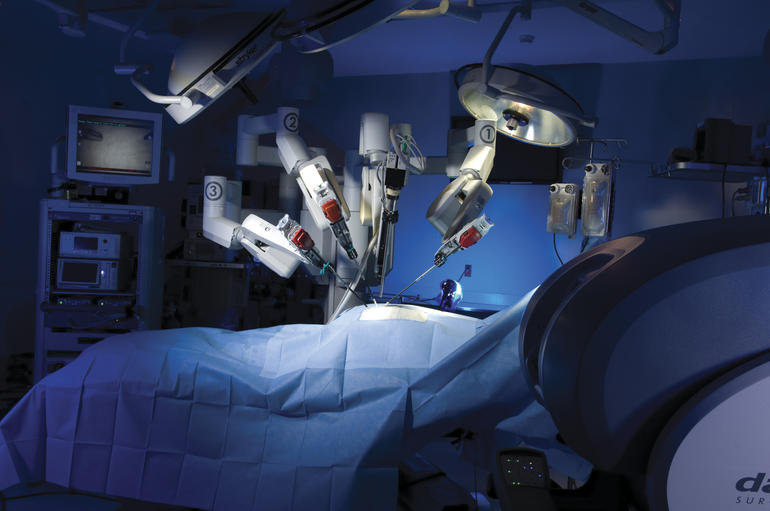
Research into Health Technology
Research in Health Technology
Research on ISS has allowed for innovations in surgical performance through the world’s first robotic technology capable of performing surgery inside MRI machines. This technology is making difficult brain tumor surgeries easier and impossible surgeries possible. Soon, medical technology stemming from space station robotics will enter clinical trials for use in the early diagnosis and treatment of breast cancer by providing increased access, precision and dexterity resulting in highly accurate and minimally invasive procedures. Development of an advanced technology solution for pediatric surgery is also in the design stages. In common laser surgeries to correct eyesight, a new technology developed on ISS is now used on Earth to track the patient’s eye and precisely direct a laser scalpel. Thermal regulation research on ISS has also led to the use of sensor technology for monitoring during surgery.
When medical facilities are not readily available such as in remote and underdeveloped regions of the world, ultrasound units are used in conjunction with protocols for performing complex procedures rapidly with remote expert guidance and training. These telemedicine and remote guidance techniques empower local healthcare providers, provide patients with access to more timely and diagnostic care, and the healthcare system is made more efficient.
A lightweight, easy-to-use device to measure nitric oxide in air exhaled by astronauts on ISS is used to study possible airway inflammation before health problems are encountered. This device is now used at some health centers to monitor levels of asthma control leading to more accurate medication dosing, reduced attacks, and improved quality of life.
The study of plasmas (charged gases that can permeate many materials and spread evenly and quickly) reveals that they support the disinfecting of chronic wounds, the neutralization of bacteria, the boosting of tumor inactivation, and even the jumpstarting plant growth.

